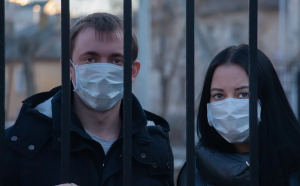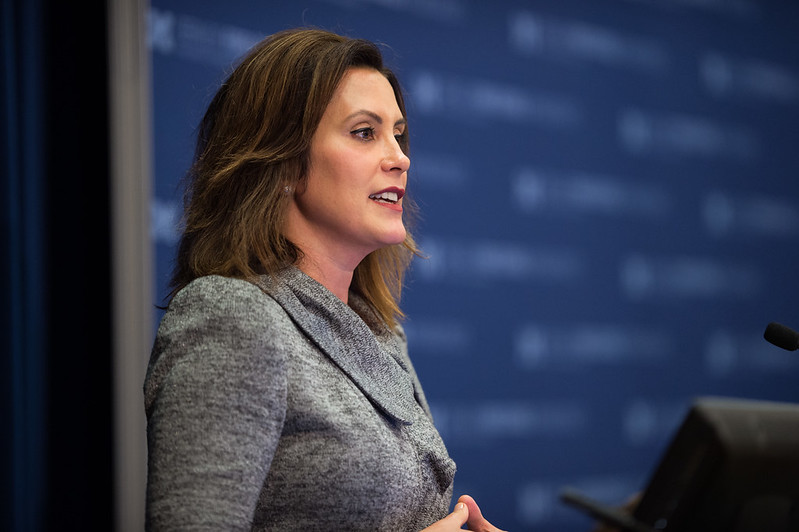The companies suing Gov. Whitmer claimed her office had exceeded its authority.
A Michigan judge has ruled that Gov. Gretchen Whitmer exceeded her authority by ordering felony penalties for employers who violated coronavirus restrictions.
According to The Detroit Free Press, Michigan Court of Claims Judge Christopher Murray found that the harshest penalty a violation of Gov. Whitmer’s coronavirus-related executive orders could have carried is a misdemeanor. Murray therefore ruled that that the penalties encoded in Whitmer’s May 21st order—entitled “Safeguards to protect Michigan’s workers from COVID-19”—are unenforceable.
Murray’s decision resolves part of a lawsuit brought by the Mackinac Center for Public Policy on behalf of the Associated Builders & Contractors of Michigan, as well as DJ’s Lawn Service, Inc.
MLive.com notes that Whitmer’s May 21st order set requirements for social distancing and screening in Michigan businesses allowed to resume operations. Under previous renditions of Whitmer’s executive order—the first rendition of which took effect in March–offenders could be hit with a $500 fine, or misdemeanor charges accompanied by a maximum of 90 days in jail.

But the May 21st revision subjected violators to the Michigan Occupational Safety and Health Act, or MIOSHA.
Under MIOSHA, employers who broke ran afoul of coronavirus restrictions could be fined up to $70,000. And prosecutors could pursue felony charges and up to three years’ imprisonment.
“An employer who willfully or repeatedly violates (the MIOSHA) act, an order issued pursuant to this act, or a rule or standard promulgated under this act may be assessed a civil penalty of not more than $70,000.00 for each violation, but not less than $5,000.00 for each willful violation,” MIOSHA says.
However, Murray said that the emergency laws Gov. Whitmer used to create new penalties only permit for misdemeanor charges. If employer infractions were to be considered violations of MIOSHA, then they would have to be separately codified as such.
“If there are to be penalties imposed for violation of an executive order issued under these statutes,” Murray wrote, “then both acts only permit misdemeanor penalties.”
“There is simply no room within the unambiguous statutory language for adding additional penalties, let alone incorporating different, and more severe penalties from a separate statutory scheme such as the felony charges and increased fines set forth in MIOSHA,” he added.
Murray’s ruling, though, still permits the State of Michigan to utilize MIOSHA in combating coronavirus—it just can’t be weaponized against employers who violate Whitmer’s orders.
“Accordingly, MIOSHA remains authorized to enforce workplace safety regulations in the COVID-19 context,” Michigan Attorney General’s Office spokesperson Courtney Covington said in a statement. “The attorney general continues to stand ready to protect Michigan’s workers and enforce state law regarding workplace safety and health.”
Covington said that the “defendants are currently reviewing the order and considering any additional steps.”
Patrick Wright, director of the Mackinac Center Legal Foundation and vice president for legal affairs at the Mackinac Center for Public Policy, said the court’s ruling reaffirms constitutionally enshrined separations of power.
“As a nation and as a state, we protect individual rights through the separation of powers,” Wright said. “Here, the Court of Claims rebuked the governor for seeking to make her own law, to dramatically increase potential penalties and to enforce it through an agency she directly controls.”
Sources
Judge: Felony penalties in Whitmer emergency order can’t be enforced
Penalty for violating Gov. Whitmer’s coronavirus safety guidelines isn’t legal, court rules


Join the conversation!